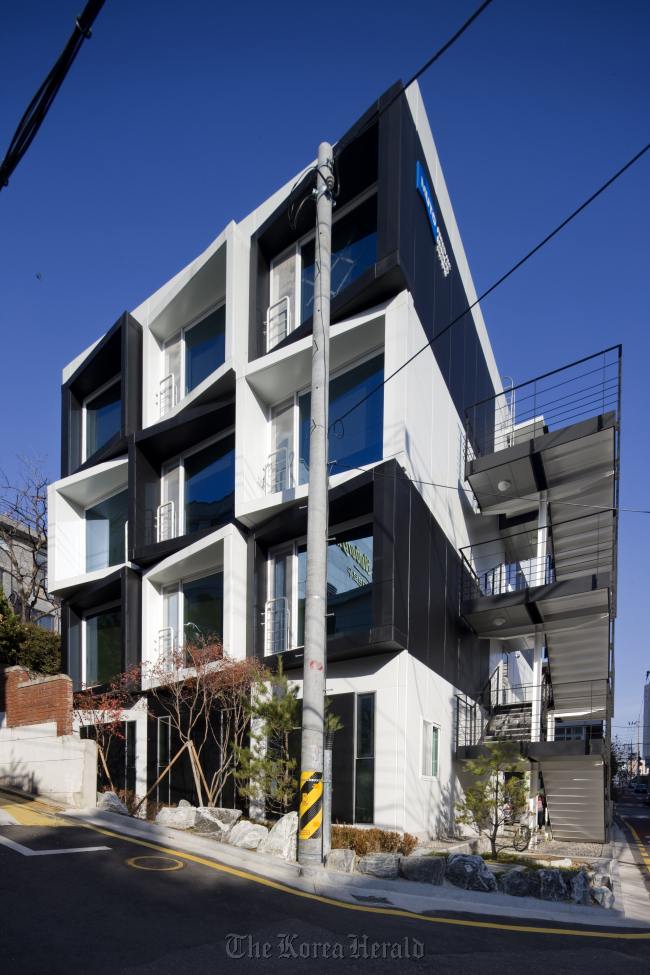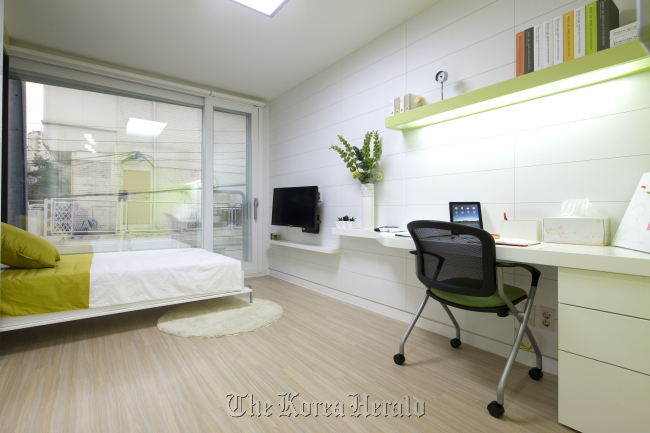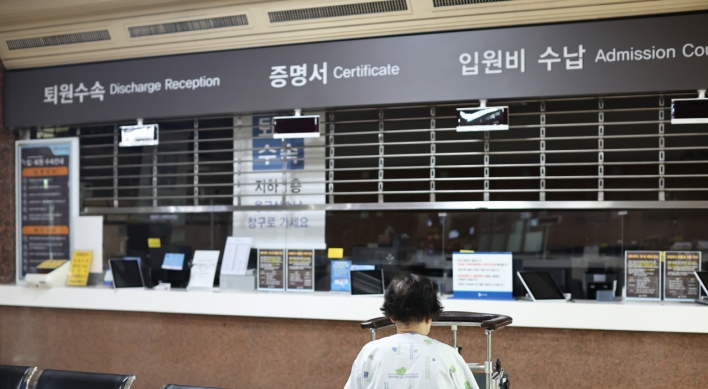POSCO unit to enter modular housing market
POSCO A&C sets eye on niche construction market and expansion of overseas business
By Korea HeraldPublished : Feb. 18, 2013 - 19:48
The local construction industry, hit by a long slump in the housing market, is striving to break off from traditional business fields and target a niche market in an effort to create new and sustainable benefits.
POSCO A&C, the construction subsidiary of the nation’s top steelmaker POSCO, has set its eye on the modular housing market as one of its future business strategies.
Modular architecture refers to the method of using standardized architecture modules from the plant development process in on-site assembly.
The system enables a reduction in the construction period of up to 50 percent, cost reduction of up to 20 percent, and building reconstruction and reuse rates of up to 70 percent.
“Because of the exorbitant housing prices and the rising number of single-person households here, the necessity of inexpensive, mass-produced houses has grown over the years,” said an official of POSCO A&C.
“We named our brand ‘Muto,’ a combination of modular and Utopia, to suggest a new housing vision and to create an ideal residential space.”
POSCO A&C, the construction subsidiary of the nation’s top steelmaker POSCO, has set its eye on the modular housing market as one of its future business strategies.
Modular architecture refers to the method of using standardized architecture modules from the plant development process in on-site assembly.
The system enables a reduction in the construction period of up to 50 percent, cost reduction of up to 20 percent, and building reconstruction and reuse rates of up to 70 percent.
“Because of the exorbitant housing prices and the rising number of single-person households here, the necessity of inexpensive, mass-produced houses has grown over the years,” said an official of POSCO A&C.
“We named our brand ‘Muto,’ a combination of modular and Utopia, to suggest a new housing vision and to create an ideal residential space.”


Using this long-term blueprint, the company last year built a modular plant in Cheonan, South Chungcheong Province, to respond to future demand.
It is here that basic construction units are manufactured in advance, before they are taken to the actual building site for assembly.
The first pilot project for the company was the construction of POSCO’s employee residence building in Cheongdam-dong, southern Seoul.
The four-story building is rented at a relatively low price to foreign nationals and is to be relocated once the company’s lease contract on the site is terminated.
Steel-structured modular houses, unlike reinforced concrete buildings, may be easily disassembled and up to 98 percent of its materials are reusable, according to the Korea Institute of Construction Technology.
The builder is also currently working with the state-run Korea Land & Housing Corp. to build modular model houses within the first half of the year, officials said.
POSCO A&C initiated its modular business in 2001 as a latecomer in the market but soon rose as a powerful player, backed by the steel-manufacturing capacities and business networks of its parent company.
“Muto is built with high-quality, lightweight steel provided by POSCO,” the official explained.
“The expansion of the modular housing market will thus create a synergy effect for both POSCO’s steelmaking and construction sectors.”
The company last year signed a 23.5 billion won ($21.7 million) contract to build a modular dormitory system for miners in west Australia and is seeking to expand its overseas market this year.
Also, Muto was recognized earlier this year by the Ministry of Land, Transport and Maritime Affairs as a standard industrial building, which means that its purchasers will be exempt from construction supervision processes.
“Because Korea’s housing screening standards are relatively strict, the ministry’s approval is expected to set a green light in our future exports,” the official said.
Despite concerns on the possibility of floor noise or poor insulation, the living environments of POSCO’s modular house are actually quite pleasant, according to its residents.
“I do not feel much difference between regular concrete buildings and steel modular houses,” said Jonathan Droege, an employee of the company’s marketing division.
He was, however, impressed by the remarkably short construction period.
“I visited the site two months before the building was to be completed and the entire area was close to empty,” Droege said.
“I naturally presumed that the schedule would be delayed but everything took place as planned, which was quite impressive.”
Living in the Gangnam district, close to POSCO’s headquarters, is another advantage, the POSCO A&C official noted.
“Because modular houses may be easily relocated and most parts reused in the process, they may be built on short-term leased land within the city,” the official said.
“If the company were to purchase land in Cheongdam-dong or other residential areas, the corresponding costs would have skyrocketed.”
The conventional construction paradigm is shifting from large-scale development projects to in-city reconstruction plans, said the official.
“The demands for small, low-cost houses will continue to increase in the future,” he said.
“We plan to invest 4 billion won or more over the next three years on the research and development of modular construction.”
By Bae Hyun-jung (tellme@heraldcorp.com)
-
Articles by Korea Herald





![[AtoZ Korean Mind] Does your job define who you are? Should it?](http://res.heraldm.com/phpwas/restmb_idxmake.php?idx=644&simg=/content/image/2024/05/06/20240506050099_0.jpg&u=)













